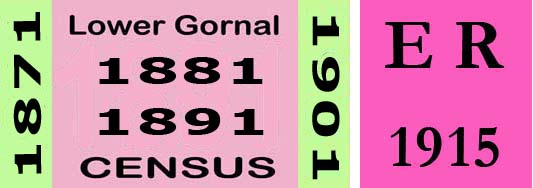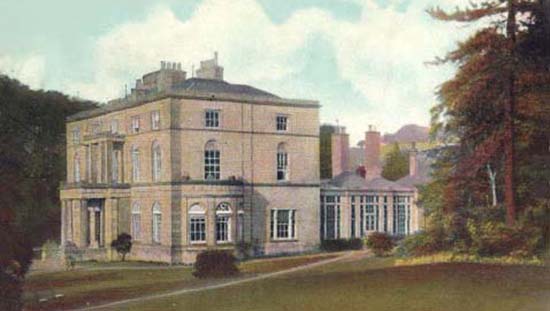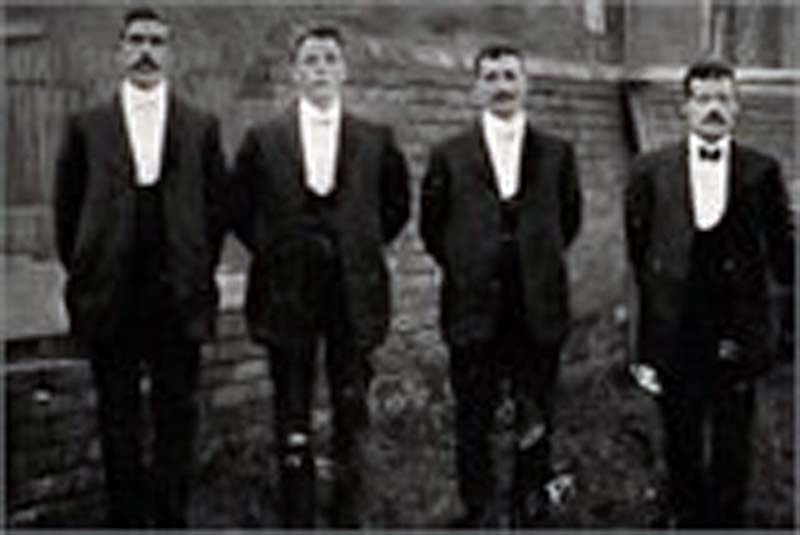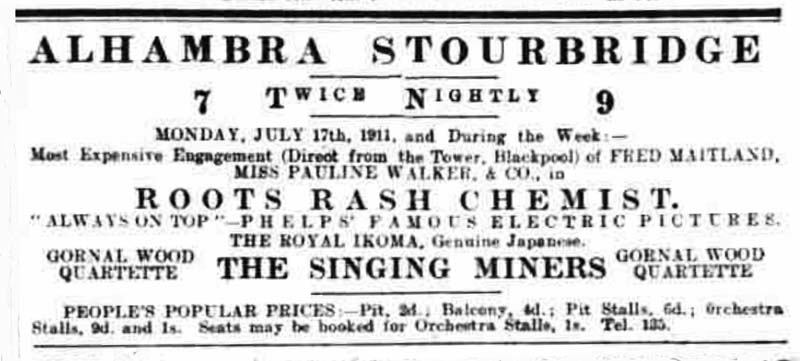
|

|
|||||
|
Landmarks ~
Churches ~
Pubs ~
Shops ~
Amenities ~
Dwellings ~
Events ~
Schools ~
Sports
Industrial ~ Transport ~ Folklore ~ Families
~ Families and People ~
Gornal's Famous
John Turton Fereday ~
John Lloyd Gibbons ~
George Kirby ~
James Yates Rooker ~
John Johnson Shaw
Theodosius Theodosius ~ Ruiton Travellers ~ Singing Miners
The Original Four Black Country Singing Miners
The 'Four Singing Miners' were Gornal locals with particularly fine singing voices, namely
John 'Jack' Abbiss, Edwin Parkes, Benjamin Parkes and James 'Jim' Massey.
They formed a quartet firstly under the title of 'Four Singing Miners' then 1912 onward as
'The Four Black Country Singing Miners' to distinguish them from other similar groups of singing miners.
The Four toured England's variety stage during the period 1910 until the outbreak of the war
in 1914 and were always well received.
Their stage show was aptly called "At The Mouth of the Pit".
The line-up may have changed over time, as J. Richards and Jack Porter
appear to have joined forces with the Parkes'
in 1913.
1913: Dudley Chronicle, 15 November.
1913, Dudley Chronicle, 18 November.
1954: Newspaper Obituary, Australia.
With the outbreak of the First World War, the men tried to enlist,
but were directed back to their former occupations working coal.
After the war, the Singing Miners did not pursue their professional singing further.
However the quartet continued singing locally for several years more, mainly for charitable causes.
Jack Abbiss, second left in photo, became the landlord of the Swan Inn in Lake Street during the 1930s.
Ben Parkes [1875-1954]
Ben Parkes was a coal miner with a fine tenor voice and a leading member of the
'Four Singing Miners',
apart from mining, he had held a variety of jobs in Gornal, as a builder's labourer,
insurance agent and he also ran a furniture shop part time.
Ben was the son of Thomas and Elizabeth Parkes of Wakelams Fold, Lower Gornal, his father was also a coal miner.
Ben married Alice Beatrice Marsh at the United Reform Church, Ruiton in 1913, Alice was a teacher and local girl from the large family of William Henry Marsh,
who were living at 1 Himley Road in 1901, Ben and brother Edwin were both living in Bull Street in 1915, Ben at No.9 and Edwin at No.3.
Ben and family emigrated to Australia in 1924, starting out on their epic journey on Christmas Eve,
an eight week trip to get to their final destination and start their new life in New South Wales.
1924, Dudley Chronicle, 4 December.
Once settled in Australia, Ben turned again to coal mining - working above ground, but as before in Gornal,
he could turn his hand to anything, later in life as a shopkeeper.
Benjamin Parkes died in 1954, his wife Alice died in 1946.
William Stanley Parkes [1913-1990].
Ben's Son, William Stanley Parkes, was born in Lower Gornal on
29th May, 1913, he was only 10 years old when the family emigrated.
'Stan' as he became known, lived an interesting and accomplished life in New South Wales, Australia.
Stan Parkes, among other things was an historian, writer and teacher, he was a
co-author of the book 'Mines, Wines and People : a history of Greater Cessnock' and several other works.
In 1943, Stan Joined the RAAF and a couple of years later married Marguerite Fernance, they had four children.
He was a keen cricketer, and known for his study of Aborigine cultures.
William Stanley 'Stan' Parkes continued to live in Australia until his death in 1990.
~
|
|
|||||

 *NEW*
*NEW*





